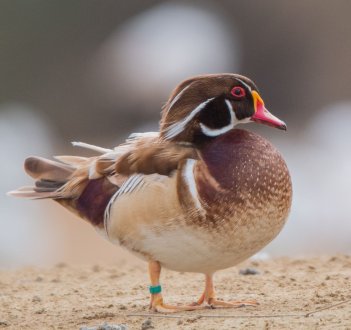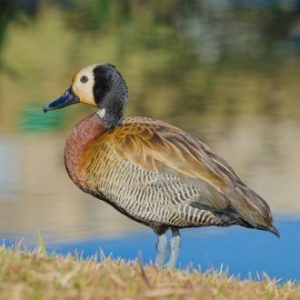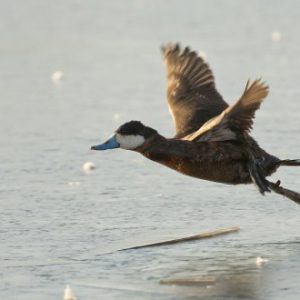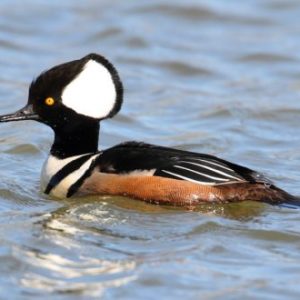Apricot Wood Ducks
A Pair equals one male and one female of similar age, unrelated.
Aix sponsa
The Wood Duck is the perfect duck species for the hobbyist or the beginner due to its hardiness and need for limited space. The Apricot Wood Duck is truly a beauty and if you are wanting to spice up your aviary, this is a great choice!
Description: The Apricot Wood Duck is a color mutation of the Wood Duck. When compared to the Wood Duck, the Apricot Wood ducks replace the green shades into shades of brown and light orange. The male apricot wood duck has a crested head that is apricot in color. He has a white stripe that leads from the eye to the end of the crest and then he has another stripe that comes from the base of the bill to his crest. He is quite stunning! He has an apricot-colored throat as well. The female has an apricot head and neck with a light apricot chest. She has a white teardrop-shaped patch that surrounds the area around her eye.
Range: This color mutation is not seen much in the wild. The wild color is located in North America.
Habitat: Apricot Wood Ducks prefer swamps, rivers, and streams.
Status in the Wild: This is a mutation of the wild color pattern, therefore not many are found in the wild.
Status in Aviculture: Least Concerned
Breeding and Incubation: The breeding season begins in April. The hens lay a clutch of 15 cream-colored eggs. Incubation takes 28-30 days. The ducklings grow fast and can start flying as early as 8-10 weeks of age. The Apricot Wood Duck is of breeding age at one year of age.
Lifespan: 15 years
Mature Weight: Males: 1.5 pounds, Females: 1.4 pounds.
Housing Requirements: It is recommended to house the wood duck mutations in a netted aviary as they do fly. Shrubs and bushes can be added to give the bird a more natural habitat. A pool is recommended to be added if there is no pond, however, this is not a requirement. Ducks do not need water to breed. Always provide fresh drinking water, however.
Diet: Wood ducks are known to forage well. They eat plants, fruits, and seeds, along with animal matter from the waters in the wild. In captivity, they require a well-rounded diet of at least 20% protein as adults. Ducklings can receive a protein level of 22 percent in waterfowl starter for the first 4 weeks of life along with duckweed and insects. Until breeding age, the birds are fed a maintenance diet of between 18-20% protein.
Notes: Wood Ducks can perch and roost in trees, therefore it is recommended to add some plants in their housing for them to roost on.




